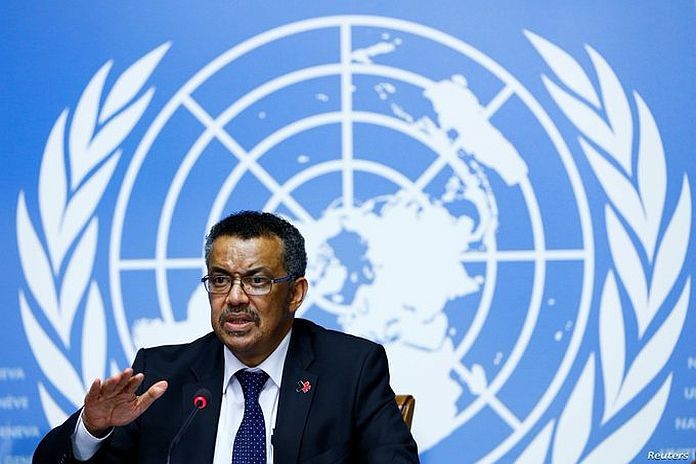-
-
- WHO Director-General’s remarks at the OCHA briefing on the emergency flood response in Pakistan – 4 October 2022
-
GENEVA, Switzerland – First of all, Ambassador, let my express my deep sorrow at the disaster that has afflicted Pakistan, my deep condolences for the lives lost, and my deep solidarity with you and your people at this time.
Martin has well described the scale of the disaster, and the scale of the need.
WHO’s executive director for health emergencies, Dr Mike Ryan, who is seated here in the front row, and other colleagues have just returned from Pakistan, where they visited the worst affected areas, and met with partners and the government to assess the needs and how best we can respond.
Approximately 10 percent of all of Pakistan’s health facilities have been damaged, leaving millions without access to health care.
Stocks of essential medicines and medical supplies are limited or have been washed away;
Damaged roads and bridges are impeding access to services and supplies; and disease surveillance and referral mechanisms have been severely disrupted.
The government of Pakistan has delivered an impressive rescue and first phase relief operation.
The loss of over 1,500 people is tragic – however, it is also remarkable that many more did not perish. This is down to the decisive early warning and immediate response actions undertaken by the government and local communities.
The government is understandably overwhelmed and needs our support. The water has stopped rising, but the danger has not.
We are on the verge of a public health disaster. Many more lives than were lost in the floods could be lost in the coming weeks if we don’t mobilize greater support for Pakistan.
There are now outbreaks of malaria, cholera and dengue, an increase in skin infections, and we estimate that more than 2000 women are giving birth every day, most of them in unsafe conditions.
An urgent and robust response, supported by sustainable funding, is needed to control the spread of outbreaks, to support routine immunization, to urgently address severe acute malnutrition, and to provide life-saving essential health services.

In August, WHO released USD$10 million from our contingency fund for emergencies, but to support our work to scale up and sustain the health sector response, we need USD$115 million.
We urge our donors and partners to support this effort.
We must all work together to support the people of Pakistan – we need an integrated approach that puts less emphasis on the work of each agency, and more on the needs of people.
And even as we respond to the emergency in Pakistan, we must remember that unless we address the existential threat of climate change, we will be responding to emergencies like this and worse more often.
Your Excellencies, once again I give you my full commitment that WHO will do everything we can to support the people of Pakistan now, and in the coming months and years as you recover and rebuild.
And I will quote secretary-general, as Martin just reminded us, “It’s not a matter of generosity, it’s justice”.






